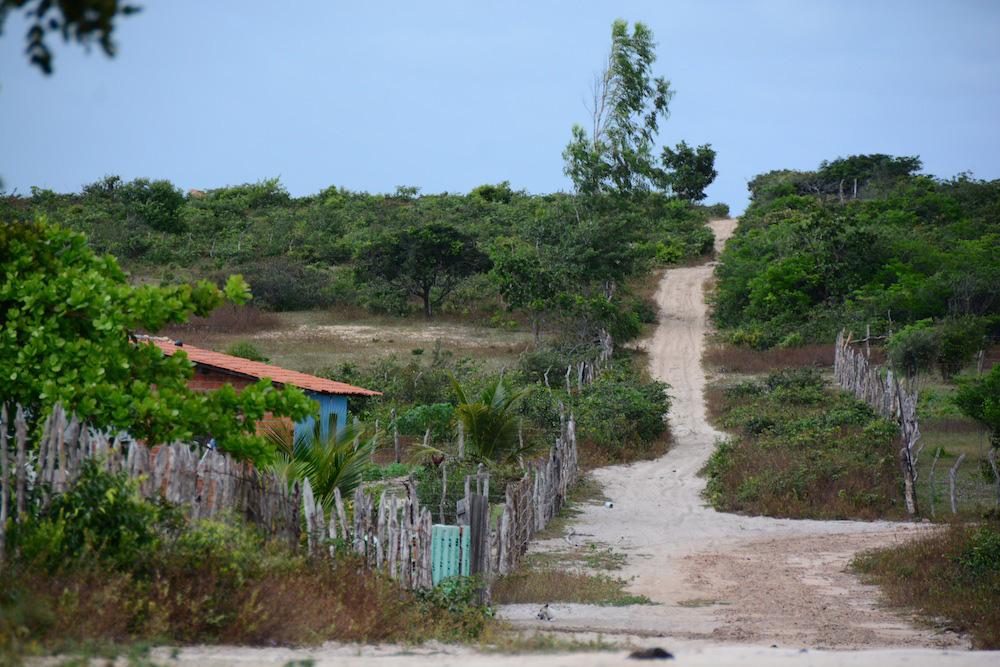
I was trepidatious when I left Rio Monday – and not just because I got into a taxi at 5:30 in the morning. My experience getting pickpocketed on the second day of my trip had put a serious dent in my confidence, the fact that I had only a vague idea of the trajectory I’d be taking to my next destination notwithstanding.
Actually, that’s a lie. I knew very specifically how I was going to reach the Lençóis Maranhenses National Park, a strange, dreamy wonderland located along Brazil’s northern coast. After flying from Rio de Janeiro to the city of São Luis, I would immediately board a bus bound for the city of Barreirinhas, then disembark an hour before the terminus at the town of Sangue, where I would catch a 4×4 to the town Santo Amaro. It was just one sentence, which required only four actions, but something in my gut told me it would be easier said than done.
The first three steps were relatively simple, even if my flight departed nearly an hour late and it took longer to reach Sangue than it should’ve taken to go all the way to Barreirinhas. There was even an empty 4×4 waiting in across the street from where the bus dropped me off. I guess all that worry was for nothing, I thought smugly.
Or not.
“Amanhã,” the weathered-looking driver shouted at me immediately as I walked toward his vehicle, as if he knew the only thing a gringo like me could be doing on his turf was looking for a ride to Santo Amaro. The word, so far as I could tell given my anemic Portuguese skills, meant “tomorrow.”
No problem, I thought, and attempted to tell the man as much in my broken Português. I walked toward the witchy-looking older gal who’d been watching me from the nearby shop, which seemed to be the main or even only business in the town. “Pousada?” I asked, hoping she had a small row of rooms behind her convenience store.
No such luck. “Não tenho,” she said, without even a hint of empathy in her gaze, which seemed deliberately mean once she elaborated. “Eu não tenho – e Sangue não tem.”
I was speechless. Granted, this stemmed largely from the fact that I’d already exhausted my Portuguese-language vocabulary several times over by this point, but she had given me basically the worst news I could’ve gotten that point. The sun was setting on the shithole of a town I’d been dropped off in (and it was the last bus of the day) and I had neither an official place to sleep, nor the linguistic prowess to ask if I might kindly use her concrete floor, to say nothing of my fear that deadly creatures might eat me as I slumbered.
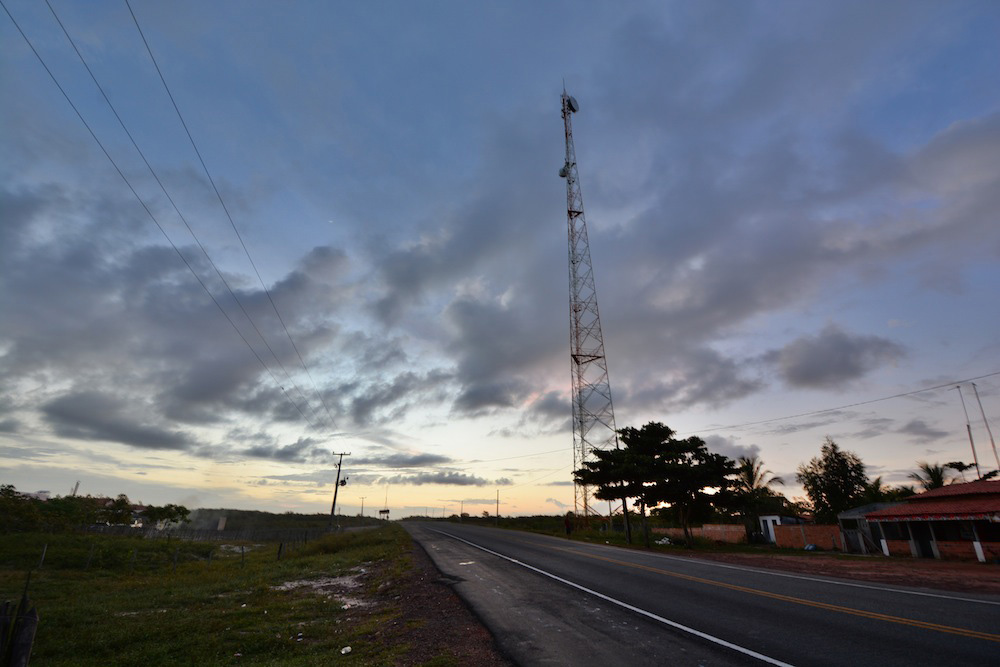
And so, I did what any deaf mute would do when faced with the prospect of being totally and completely fucked: I sat still, said nothing, heard nothing and got completely lost inside my own paranoia.
Brazil has really done it this time, I said, thinking back on how angry and out-of-control I felt upon realizing my phone had been stolen a few nights earlier and struggling, in spite of my cerebral knowledge that doing so would be inaccurate, not to attribute either (or both) incidents to the fact that I was in Brazil, more than any other country. Yeah, fuck you Brazil.
Likewise, I did my best not to extrapolate the indifference I observed among every single person I’d met in Sangue (there were, for the record, two) to Brazilian people in general, toward a conclusion – that Brazilian people are not really very friendly – I already once held as truth and had swiftly disproven.
Left, so it seemed, without any action to take, there were few other avenues for resolution – at least in my mind – than blaming my circumstances and the people who were currently part of them.
But the fact is that I was at least partially to blame. I mean, I could’ve just continued on to Barreirinhas instead of attempting to make it all the way to Santo Amaro, in spite of the fact that everything I read said that Barreirinhas was a toilet (and Santo Amaro wasn’t), and in spite of knowing for a fact I could only see the dunes of the Lençóis by Jeep in the former and preferring the prospect of trekking, which was apparently possible in the latter.
I was fated to end up there anywhere, it seemed. After she took some kind of delivery from the man who’d parked in front of her shop about an hour after I arrived, the old witch had informed me that he was headed to Barreirinhas – and that I had essentially no choice but to go with him.
There was no point in feeling disappointed. Next time, I thought as I threw my bags into the back of his pickup, I’ll take the path of least resistance to begin with.
***
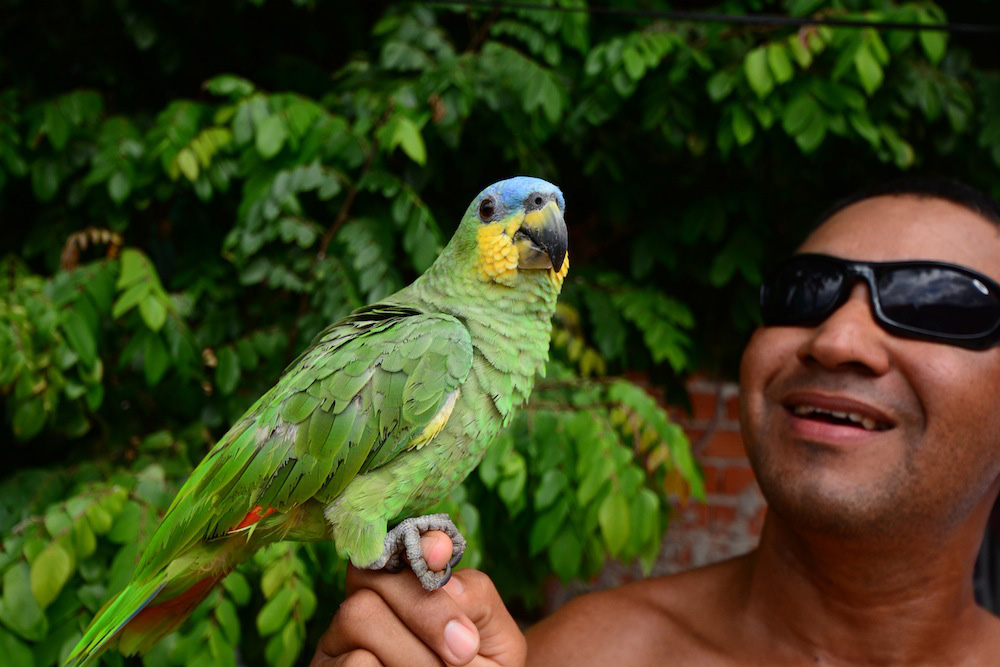
I giggled when I found out the parrot, whose colors matched the Brazilian flag exactly, was named Lauro – the only other living creature I’d ever met with that name was a recent one night stand.
Lauro was the second living thing (the first was a scruffy, black dog) I met upon arriving at the home of Gilson, the man who’d driven me to Barreirinhas, early the morning after my dramatic exit from Sangue. Gilson had dropped me off at a pousada just outside the city limits on his way to his house the night before, and had surprised me by explaining that he would be taking me back to Sangue the following afternoon to catch that day’s 4×4.
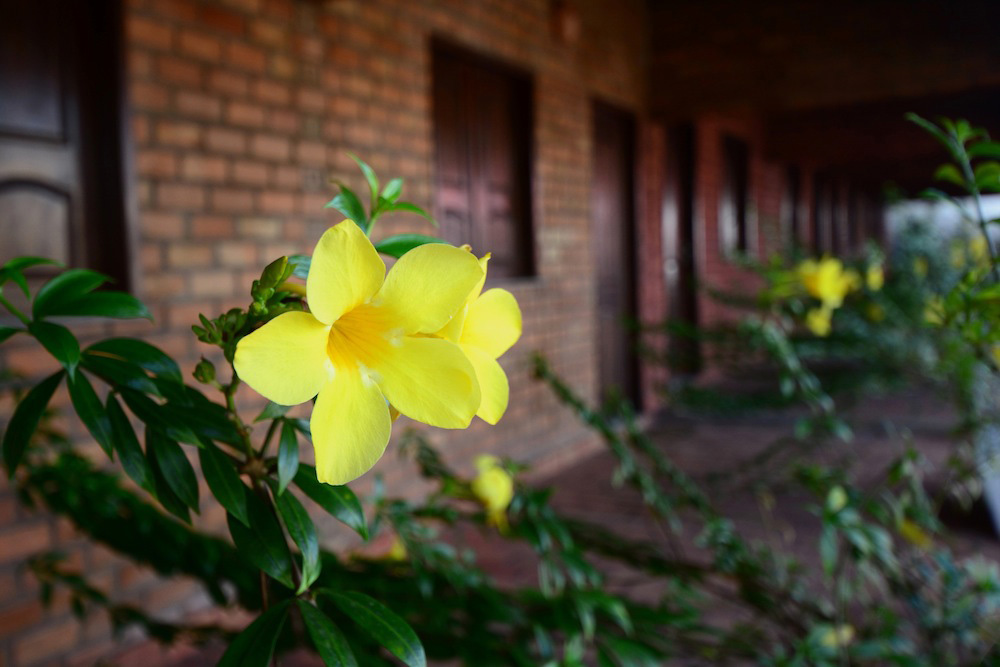
Or at least, that’s how it had sounded: Gilson would pick me up at 9 a.m. and take me back to Sangue – and that would be the end of that. I had a feeling something was up when we started driving in the wrong direction; I strongly suspected it when we went to the local market and he asked me whether I would prefer bisteca or peixe; and I knew it for a fact when I walked into his home and he introduced me to his pet parrot and pet dog (And, shortly thereafter, all four of his children).
Realistically, I knew this man had no incentive to hold me hostage and would eventually make good on his promise to get me back to Sangue. So, I leveraged all the sensibility and optimism within my being and focused only on how thankful I was to him for saving my ass. There were a few moments, as we walked on the banks of the beautiful Preguiças River, where I hallucinated that he might be trying to swindle me into booking one of the expensive resorts on its shores, but those thoughts swiftly dissipated once we headed back to his place for lunch.
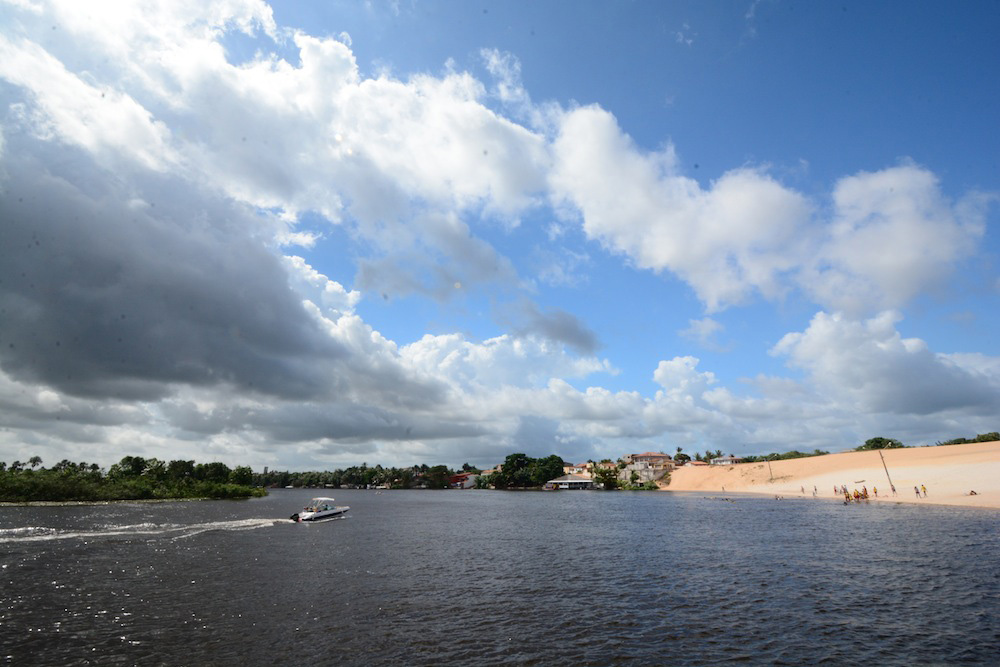
Indeed, from the time I met him in Sangue to the time we said goodbye less than a day later, I felt genuinely humbled by the kindness of Gilson and his family, from the delicious food they fed me, to the extent to which they attempted to make conversation with me, in spite of the language barrier between us, to the constant reassurances Gilson would give me when I’d forget important details he told me on account of them not being in my own language.
Here was a person who had absolutely no reason to be kind to me, let alone to treat me like his own child for the better part of a day, and he single-handedly restored all the faith I’d lost in humankind.
And yet, I couldn’t shake the same paranoia that had overtaken me while sitting in the Rio airport 24 hours before: That things simply weren’t going to go smoothly for me.
***
The old witch was smiling when I returned to Sangue, which was a very good sign – I had never so much as seen her teeth during our previous interaction. Initially, I’d been scared that I missed the 4×4 (Gilson had not, in fact, driven me back to Sangue but rather, to the rodoviária, from which the bus departed quite late) but this alone calmed my anxious heart.
“Santo Amaro?” The handsome man who got off the bus at the same time I did asked.
I nodded. “Sim.”
“Quatro horas,” he said, and walked inside to watch the football match with the local men. “O ônibus sai a quatro horas.”
It’s been a while since I traveled independently in Latin America, you see, so it makes sense that I’ve partially forgotten how time works here. When Gilson said I’d leave Barreirinhas at 2 to arrive in Sangue by 3 to catch the 4×4, what he meant is that I would arrive sometime in the 3 o’clock hour, then leave at 4 p.m., which I now imagined would be closer to 5 (which, interestingly enough, would have been almost late enough for me to have caught the day before). But I digress.
A 4×4 vehicle did indeed show up just after 4 p.m., only a curious thing happened: Everyone disembarked, but nobody went anywhere. The old witch (I feel bad calling her that at this point, because she was being so friendly toward me) told me to put my bags by the others’ bags, I assume to hold my place on the vehicle.
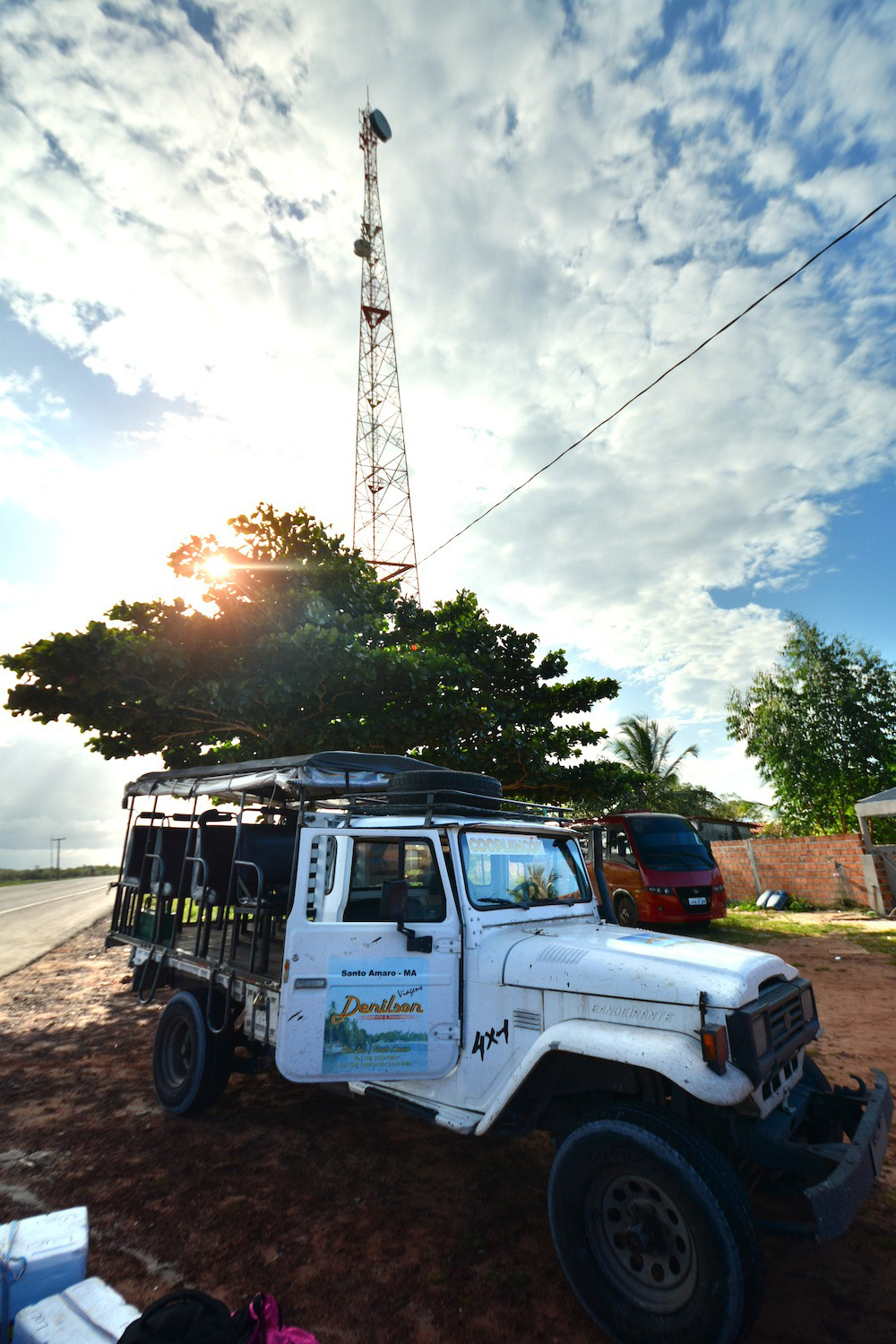
But 15 minutes passed, then 30, then 45 and place held or not, nobody was getting onto the empty vehicle. And unfortunately, I lacked the faculty with Portuguese to inquire on a deeper level, so I decided to do what would’ve served me in every other trying situation I encountered up to that point and just wait.
Eventually, a van bearing the “Denilson Viagens” (the same brand as the 4×4) arrived, carrying a full load of passengers – and an even fuller load of cargo. The scene initially perplexed me, but it soon became clear what was happening: The van was coming from São Luis (edit: Why hadn’t information about this van’s existence been available on the English-language Internet?) and all of its passengers were boarding the now-empty 4×4.
Only it wouldn’t be empty anymore. Quite full, in fact. Actually, completely full.
Slightly panicked, I handed my bag up to the handsome man who’d ridden the bus in with me, who was packing other bags on top of the vehicle.
He laughed and shooed it away, and whispered something in Portuguese under his breath. I handed it up to him again and he once again disregarded it, motioning to the older lady standing next to me to explain what was going on.
“Ele disse que não há espaço,” she said, confirming my worst fear. “Você tem que esperar até amanhã.”
But I already fucking waited until “tomorrow!” I thought, shouting inside my head but powerless to say anything that wouldn’t make me sound stupid. So again I waited, until the vehicle was literally so full it looked like nothing else could fit on it. In the distance the witch was looking on, with an impossibly sad gaze – her eyes looked to be ready to burst with tears. Likely on my behalf. I knew what that meant.
I had emotionally thrown in the towel of getting to Santo Amaro that day (and, thus, ever – I wasn’t going to that rodeo again), when a linguistic fountain bubbled up in me. “Eu voei do Rio ontem e eu já esperei 24 horas!” I shouted in the general direction of the 4×4. “Não mais de uma vez!”
I was afraid all the other passengers, who’d up to that point had remained silent, would start laughing at me. But instead, one immediately voiced her support.
“Temos espaço aqui,” she said softly, and moved the bags that were taking up the seat next to her to the floor. “Por favor, sente-se aqui.”
Not wanting to receive a “no” vote from the driver, who already seemed stressed due to the load the van would be carrying, I got on the vehicle without asking, and began attempting to the thank the woman, whom I soon discovered had also come from Rio de Janeiro, and her husband, whom in addition to moving bags had also relocated their son to another part of the vehicle to accommodate me.
I doubted after all I’d been through that the 4×4 would actually be able to leave but sure enough, after more than a day of only sort-of-patiently waiting, I was on my way down the rough, sandy road to the Lençóis Maranhenses.

How to Get to Lençóis Maranhenses
KEY POINTS: That was long, huh? Imaging living through it! In any case, if you navigate to this article simply for the purpose of discovering how to reach Lençóis Maranhenses, here is the information you need.
1. Fly to São Luis airport, code SLZ
2. Take a taxi to the bus station (“rodoviária” in Portuguese), then a bus to Barreirinhas
or, if you want to take a road less traveled and see better dunes…
2. Contact Denilson Viagens before your flight arrives in SLZ and book one of their transfers to Santo Amaro
or, if you want to risk several heart attacks like I did…
2. Get off your Barreirinhas-bound bus at Sangue and pray to God the 4×4 is still there

Robert Schrader is a travel writer and photographer who’s been roaming the world independently since 2005, writing for publications such as “CNNGo” and “Shanghaiist” along the way. His blog, Leave Your Daily Hell, provides a mix of travel advice, destination guides and personal essays covering the more esoteric aspects of life as a traveler.








